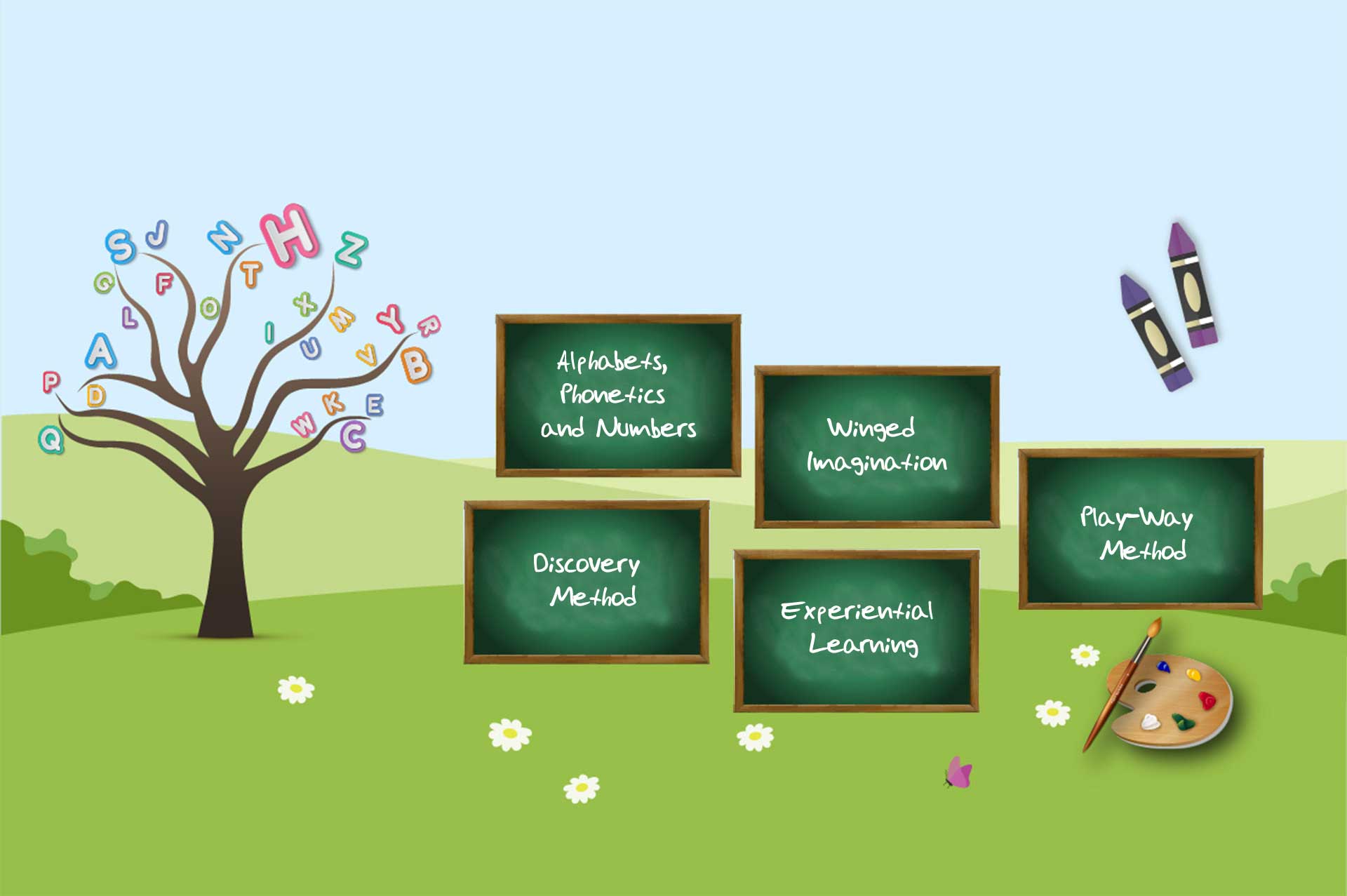
FOUNDATION YEARS PROGRAMME
THE PRIMARY SCHOOL
I TO IV
The Primary School Programme encourages inquiry and exploration, and develops children’s competence in various skills – reading, writing, listening, speaking, problem-solving, observation, measurement and use of information and communications technology.
It offers an exciting and creative learning environment, with an inter-disciplinary appreciation of Languages, Mathematics, Science and Social Studies, as individual and integrated subjects. Hindi is taught as a Second Language, while Marathi language offered as the Third Language, which helps build a strong foundation in Regional language. The ICT helps students understand Information and Communications Technology and its benefits. Equal emphasis is given to individual, small group and whole-group activities, to improve children’s ability to work across all levels. Physical Education develops sports skills and creates health awareness. Exposure to team and individual sports encourage a sense of team spirit, and individual effort and accomplishment.
The wide range of curricular and co-curricular opportunities offered helps instil in children confidence and discipline. The focus on developing communication skills helps them appreciate the value of education, as it reflects in their ability to express themselves, in addition to developing pragmatic skills.
Field trips, excursions, activities, projects and presentations provide experiential learning opportunities. Dance, Fine Arts, Western and Indian Music, Yoga, Speech and Drama promote well-rounded development. Students are encouraged to participate in inter-house cultural and sports events. Active learning techniques like free play, dramatisation, and puppetry, songs, dancing and cooking enhance their interest in learning. Book, newspaper and magazine reading activities increase children’s awareness of the world. Assemblies, concerts and drama productions help shape their confidence.
Students’ engagement in community service activities from Class III onwards sensitises them to the needs of their community and to the world around them; they visit old-age homes and orphanages to understand their situations and also to support underprivileged children.


